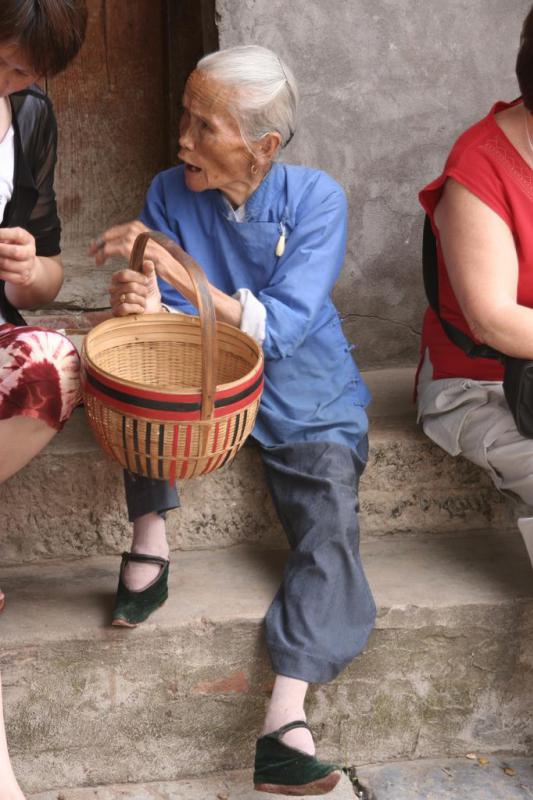At WiseGEEK, we're committed to delivering accurate, trustworthy information. Our expert-authored content is rigorously fact-checked and sourced from credible authorities. Discover how we uphold the highest standards in providing you with reliable knowledge.
What Should I Know About Chinese Etiquette?
Many Asian cultures are famous for their complex etiquette, and China is no exception. Over centuries, the Chinese have developed a very complex system of etiquette which can sometimes be bewildering for foreigners. The most important thing to know about Chinese etiquette is that effort counts for a lot; as long as people are making a genuine effort to be courteous and polite, small transgressions may be forgiven or gently pointed out for future reference.
One of the underlying concepts in Chinese etiquette is the idea of “face,” or respect and reputation. Chinese people take their reputations very seriously, and interactions which appear to undermine someone's reputation should be avoided. For example, shouting at someone in a public place or trying to prove someone wrong in a mixed group will be perceived as offensive. Something which may seem like a mild slight to a foreigner could be perceived as highly inappropriate under the rules of Chinese etiquette if it undermined someone's position of respect.

Chinese culture is also highly superstitious, and this plays a role in Chinese etiquette. As a general rule, odd numbers are considered unlucky, so people should avoid giving gifts in odd numbers, or inviting an odd number of people to a party. The number four is an exception to this rule, because it is a homophone for “death” in Chinese, and it is therefore considered unlucky. The colors black and white are inauspicious, while red is a fortunate color; presents should be wrapped in red, if possible, and red décor is a good idea for parties. Certain gifts are also taboo, such as clocks, which are associated with funerals.

The Chinese prefer to do business and make introductions through intermediaries, rather than meeting directly, at least at first. Businesspeople traveling in China should use the services of an intermediary connection to meet new contacts, and casual travelers should also seek out introductions through intermediaries, if possible. In all cases, when introductions are made, they are usually formal, starting with the most senior person present. People remain standing for introductions, and they may shake hands briefly, but they will not engage in other physical contact or express emotions.

As in many other cultures, formal honorific titles should be used unless someone indicates that a more casual form of address should be used. This is particularly the case with people who are older or senior in rank. Chinese etiquette frowns upon excessive physical contact, and displays of emotion; in particular, frowning while someone speaks is a sign of disagreement. Showing the soles of the feet or shoes is also considered impolite. Respect for the elderly is also very important. People will rise when an older person passes, and offer assistance with doors and parcels to people who are older as a mark of respect.

For those who are fortunate enough to be invited to a Chinese party or dinner, bringing a gift for the host is expected. Gifts should be modest, rather than flashy, and they should be presented in even numbers. At a dinner, people are expected to try everything and express interest in everything on the table. If a guest has not helped him or herself to something, the host will put it on the guest's plate.

Some particular rules surround the use of chopsticks. Chopsticks should never be used to point at people, and they should also not be licked or stuck upright into a dish. Passing foods to other people with chopsticks is considered taboo, and when chopsticks are used to pick food from a communal plate, the wide end of the chopsticks should be used, so that the part which touches the mouth does not come into contact with the food.

It is important to express thanks for services rendered and gifts in Chinese etiquette, and to be modest when being thanked. Modesty is a highly valued trait in many regions of China, and many of the rules of Chinese etiquette revolve around the concepts of modesty and “face.”
AS FEATURED ON:
AS FEATURED ON:

















Discussion Comments
My company was negotiating a contract with a major Chinese firm, so we all had to take proper business etiquette classes. It was one of the hardest classes I had ever taken. Chinese etiquette and protocol isn't just about the do's and don'ts of dining or dating or telephone etiquette. It's more about demonstrating respect for elders and knowing when to step back and listen.
I never actually met the owner of that Chinese company in person. That's not how business is conducted there. I met with a young sales accountant first, and then he introduced me to a man I assumed was the owner. He was actually a junior executive who asked us many detailed questions about our proposed deal and then took all of that information to the owner. Several months later, my boss received a handwritten letter from the man, agreeing to our terms. It was an eye-opening experience, for sure.
I once worked as an English tutor for a Taiwanese woman, and she often gave me lessons on Chinese etiquette and protocol. She wanted me to meet the rest of her family, and many of them were very traditional. She wanted to make sure I didn't accidentally offend anyone with my lack of knowledge about their customs.
One thing I learned was not to point fingers or whistle at someone else to get his or her attention. Pointing and curling a finger in a "come here" manner is considered to be extremely rude. That's how you call a dog, not a person.
I was surprised one night when she served soup to her children and they all slurped it very loudly. I would have thought something like that would be offensive, but according to Chinese dining etiquette, slurping soup is an expected practice. I had no idea.
Post your comments